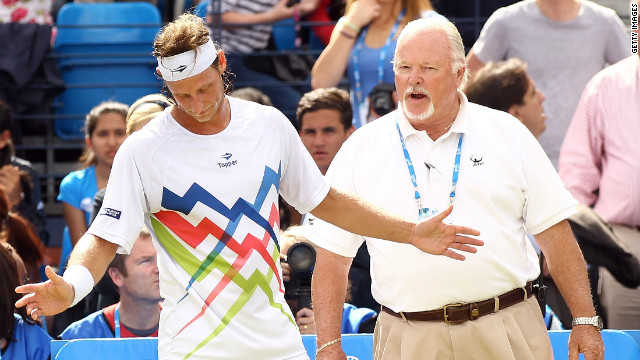It is pretty common knowledge that players are not subject to three-strike DQ's at Nationals. If you are a self-rate or appeal player and you aren't DQ'd through your Sectionals, you are eligible to play at Nationals and won't get a DQ during play there.
But did you know that you can get DQ'd after Nationals? I guess I just hadn't thought about it, always just figured year-end ratings come out relatively soon after, but I just noticed that several players that played at last weekend's Nationals were indeed DQ'd and promoted up a level.
The three I saw were from a Texas 4.0 team that made the final but did not win and two of them were the one's I'd mentioned earlier as barely missing a DQ during the regular season. They both likely had 5 strikes at Nationals but no matches are reversed and the players are just promoted to the next level.
What about the SoCal team that beat them? They didn't have any DQ'd, but then again they didn't have the appeal or self-rates Texas had.
And what about the Texas 3.0 team that won the prior weekend? They didn't have any, but they had fewer self-rates and the threshold for strikes for a 3.0 has a lot more tolerance than for 4.0.
What does this mean? Just that these players were playing well above level by the time Nationals was played and get promoted early rather than waiting for year-end. There are certainly other players from their Nationals that will be bumped up too, they just have to wait.

The article is either misleading or very difficult to understand.
ReplyDeleteDid anyone get disqualified, as in matches being lost and team rankings affected, or was it that someone got bumped from 3.5 to 4.0 ntrp level?
If you read the post, it clearly states you can't be DQ'd during Nationals which means no matches are reversed or standings changed. What the post brings up is that you can get DQ'd/promoted _after_ Nationals.
Delete